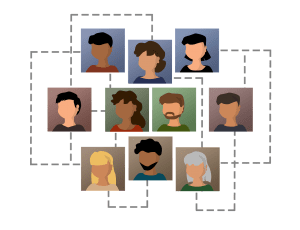The Pros & Cons Of Developing Your Own Business Software

In some cases, this can be a genius idea. In others…not so much. How do you know if this is the right approach for you? It starts by understanding the main pros and cons of developing your own business software:
Pro: Software created for you, by you
In theory, your own software will be perfect for your business. There will be no irrelevant features; everything is built for you and your daily operations. As such, you don’t waste money on software products that might provide you with some of the features you need, along with a host of things you never use. This means a lot of businesses end up paying for multiple software products as Product A provides some of the features they need, then Product B might provide the rest. If you develop your own software, you can eliminate the need for multiple platforms, making it so much easier for everyone in your business.
This would mean you only need to learn how to use one software program, which helps you when training your employees. As mentioned already, you also don’t waste any money on programs with features that are never going to be used.
Con: An expensive process
Software development is not cheap at all. The entire process can set you back thousands of dollars very easily. After all, you have to pay for a lot of different things. For one, who is going to develop your software? If you want it all done in-house, this means creating a load of software development and software QA jobs for people to apply for. Your new hires will need to be paid, so you’re forking out a lot of money on an ongoing salary. The other option is to outsource, but this will also cost a fair bit of money – not to mention the fact you may need to keep paying for support after the app has been developed.
For a business that already has a series of outgoings and expenses, is this a wise idea? On reflection, you might realize that it is way more cost-effective to pay for software that’s already been made.
Pro: Can sell your software
As a counter to the argument about costs, you could sell your software to other businesses. Much like you pay a fee to use someone else’s software, other companies can do the same to you. This could be a genius idea if you develop software and are in a very niche industry where there aren’t many other options available. Fellow businesses might recognize that your software does everything they need to do, so it makes more sense for them to pay for yours.
The only caveat to this is that, if you develop custom software that’s meant for your business, will it be relevant to other businesses? There is a chance that it could be, but if it isn’t then you won’t really be able to sell this product.
Con: It’s a risk
Custom software development can be a big risk. If things don’t go according to plan, you’re left with an expensive software product that doesn’t do its job. A lot of businesses have ended up reverting back to their old software because the custom one ended up being rubbish.
The only way to avoid this is by being patient throughout the development process. Don’t rush things, be clear on what you want your software to do, and test it thoroughly! Ensure that you test your software to iron out any bugs and make it work perfectly for you and your employees. This’ll mean that, when it’s ready to launch, it should be perfect.
On both sides of the argument, there are some pretty strong arguments. It really depends on the type of business you run, and the software you need to use. If you run a business that uses a lot of generic software, it probably isn’t wise to develop your own as there are already great products out there that work for you. If you have a niche business and find that you’re struggling to use multiple products every day, custom software could be a good shout.


